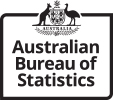Contact details
Select the category that best describes you or the organisation you represent:
Organisation categories
Please select one item
Radio button:
Ticked
Individual
Radio button:
Unticked
Academia/educational institution
Radio button:
Unticked
Australian government
Radio button:
Unticked
Business
Radio button:
Unticked
Community organisation
Radio button:
Unticked
Industry body/association
Radio button:
Unticked
Local government
Radio button:
Unticked
Non-government organisation
Radio button:
Unticked
State/territory government
Radio button:
Unticked
Other (please specify)
Has this submission been prepared in collaboration with any other individual(s) or organisation(s)?
Please select one item
(Required)
Radio button:
Unticked
Yes
Radio button:
Ticked
No
What information would you like the ABS to collect and produce statistics on?
Please provide a brief summary of the information you would like the ABS to collect and produce statistics on.
Freetext box for brief summary
The amount of out-of-pocket expenditure relating to mental health treatment/management costs, and out-of-pocket expenditure relating to chronic health condition treatment/management. Out-of-pocket expenditure refers to the amount of money an individual personally fronts after any Medicare or private health rebate. Costs associated with medication should also be included. Whether individuals have rationed care or not sought adequate care as a result of out-of-pocket expenditure should also be included.
What topic does this information most relate to? (Select one)
Please select one item
Radio button:
Unticked
Aboriginal and Torres Strait Islander peoples
Radio button:
Unticked
Cultural diversity
Radio button:
Ticked
Health, disability, unpaid work and care
Radio button:
Unticked
Household and families
Radio button:
Unticked
Housing and homelessness
Radio button:
Unticked
Income, work, education and training
Radio button:
Unticked
Location and transport
Radio button:
Unticked
Population, including sex and gender
Radio button:
Unticked
Other (please specify)
To help us assess your submission, tell us why it is important that the ABS collect and produce this information, including how you would use the data.
Freetext box for importance of data and how it will be used
This information is important in assessing how individuals with mental health and/or chronic health conditions access and afford care. It speaks to and will shed more light on the current state of the Medicare system and provide a greater insight into how managing chronic conditions (and multiple conditions) impacts individuals financially.
This information will also provide data pertaining to disadvantages those with chronic mental health/health conditions face due to the costs associated with seeking adequate and appropriate treatment and the lifetime burden of these costs.
This information will also provide data pertaining to disadvantages those with chronic mental health/health conditions face due to the costs associated with seeking adequate and appropriate treatment and the lifetime burden of these costs.
For what purpose(s) will you use the data? (Select all that apply)
Please select all that apply
Checkbox:
Ticked
Resource allocation for programs and policies
Checkbox:
Unticked
Planning, development, monitoring and evaluation related to programs, policies and service delivery
Checkbox:
Ticked
Research
Checkbox:
Unticked
Journalism/media
Checkbox:
Unticked
Other (please specify)
What is the smallest area or geography required to effectively use this data? (Select one)
Please select one item
Radio button:
Ticked
National
Radio button:
Unticked
State/Territory
Radio button:
Unticked
Statistical Area Level 2 (suburb or locality)
Radio button:
Unticked
Statistical Area Level 1 (neighbourhood/rural district)
Radio button:
Unticked
Local Government Area
Radio button:
Unticked
Don’t know
Radio button:
Unticked
Other (please specify)
Is there other information you would like the ABS to collect and produce statistics on?
Please select one item
Radio button:
Unticked
Yes
Radio button:
Ticked
No
Additional information
Would you like to tell us anything else about your submission?
Freetext for additional information
Understanding the financial burden of managing chronic health/mental health conditions is important in understanding how treatment is accessed, afforded and how the costs associated potentially disadvantage individuals financially or inhibit them from accessing care.
